- Home
- H A CULLEY
Seeking Jerusalem Page 11
Seeking Jerusalem Read online
Page 11
Below the slight rise on which Waldo had halted lay a flat plateau with steep cliffs on the seaward side. On the landward side, two miles from the cliffs, lay an extensive forest, unusual in this part of the world. Waldo could just make out a slope on the other side of the plateau which led down to the port of Arsuf with its harbour.
The Saracens who had been shadowing the crusaders from a safe distance up to this point had disappeared, which made Waldo suspicious. Then one of the Turcopoles who had halted with him grabbed his arm and pointed into the trees. At first Waldo couldn’t see what had excited him, but his vision was not helped by the salty sweat that kept running down his forehead and into his eyes. He wiped his face with the silk scarf he wore round his neck and then he saw a flash momentarily where the sun had been reflected off a helmet or a spear point in the trees.
Leaving his men there he rode back to where his battalion commander was waiting impatiently. When he told him what he had seen Waldo was sent back to tell the king. He didn’t have to go far. The king was cantering forward with a small escort to see why the column had halted. When Waldo told him about the enemy in the trees, King Richard rode forward to look at the ground where Saladin obviously intended to ambush the crusader army.
The Lionheart studied the ground for ten minutes then, without saying a word, he turned his horse and rode back the way he had come. Waldo and his men dismounted to give the horses a rest and took the opportunity to take a drink of water to replenish some of the liquid that the relentless sun had extracted from their bodies through sweat and evaporation.
A quarter of an hour later a messenger told Waldo to continue the advance and he cautiously led his men down the slope and onto the plateau. The army followed in its three columns; even bunched up it stretched for nearly two miles. It wasn’t until the rear guard had crested the rise that Saladin made his move. By this time Waldo was only half a mile from the road which descended to the port. His orders were to stop for nothing until he reached Arsuf but suddenly a thousand Saracens emerged in front of him. They must have been waiting in dead ground until he was only a few hundred yards away. Waldo was outnumbered ten to one and, although there were nine hundred other Turcopoles in the screen thrown out in front of the army, they were too far away to intervene before his small command was cut to pieces.
~#~
Richard de Cuille was riding with his conroi in the centre of the main body. Their task was to protect the standard; a large red cross embroidered on a white sheet bordered by a heavy gold fringe and mounted on a cart. It was designed as a rallying point which could be seen from some distance.
When they were halfway across the plateau the forest a mile away suddenly erupted with Saracens. Saladin had organised his army into three divisions. Five thousand horse archers on the right attacked the Hospitallers whilst some ten thousand foot engaged the crusader infantry. Saladin’s infantry were a mixed force of Bedouins, Nubians, Turks, Syrians and Egyptians armed with a variety of weapons and shields, but few wore armour; what they did have was religious fervour.
The horse archers kept up the pressure on the Hospitallers; few were killed but several were wounded and a number of the destriers and coursers ridden by the knights were hit. In return the Hospitallers crossbowmen started to take a severe toll of their attackers.
Saladin was gambling that the constant pressure that his men put on the crusaders would cause them to launch a counter attack by the knights. He could then isolate them so they could be cut down by the lighter armed but more mobile and more numerous Saracen horsemen. But King Richard was only too well aware of this and needed to time the charge by his four thousand knights so they broke the Saracens and swept them from the field.
The Grand Master of the Hospitallers sent to the king asking for permission to charge and drive off the archers that were swarming around his rear guard like flies round a dung heap.
‘Remind the Grand Master of what I told him last night. No-one is to charge until they hear the trumpets sound.’ The king had placed three pairs of trumpeters around him and he had given strict instructions that no-one was to charge until they blew three blasts.
De Cuille continued to sit on his destrier beside the massive standard on its cart. The sun beat down and he found just sitting there doing nothing frustrating in the extreme. Sweat trickled down his back, chest and his face inside his helmet and insects buzzed around him, biting his horse which made it skittish. He hadn’t been able to wash since leaving Acre – water was too precious to waste – and he stank to high heaven.
Meanwhile the Hospitallers were placed under even more pressure when Saladin send two thousand of his mounted spearmen in to support the horse archers. This time they had some success and managed to kill or wound quite a number in the infantry screen in front of the waiting knights. Saladin’s infantry had fought heroically and had managed to push their opponents back until the crusader line nearly broke, but at tremendous cost to themselves. The battle was finely poised and yet Richard still did not commit his knights.
~#~
Waldo had formed his Turcopoles into an arrowhead formation and started to canter towards the enemy. As soon as they came within range his men loosed off three arrows in quick succession before changing their bows for a sword and bringing their shields into play from where they were carried on their backs. The three volleys of arrows had brought down perhaps thirty horses in the middle of the enemy line and caused further chaos as the riders behind them ploughed into them. Then a volley of arrows from the Saracens caused significant casualties to the Turcopoles. However, because they were riding in a spearpoint formation, the fallen horses didn’t disrupt the formation significantly and they quickly closed up again.
As they neared the mass of Saracens, Waldo gave the signal to change to wedge formation and his men completed the manoeuvre just before striking the oncoming enemy. The point of the wedge punched through the first few rows and Waldo swung his sword to good effect emptying several saddles as he forced his way into the centre of the opposing horsemen. He felt several blows hit his shield and a spear point broke the links of the chain mail chausses protecting his right leg, cutting his flesh quite deeply but Waldo scarcely even noticed the wound in the heat of battle.
Inevitably the mass of Saracens slowed the wedge and within sight of the rear ranks of the enemy forward momentum became impossible. Waldo had lost half his men by that stage and the rest were surrounded and fighting for their lives. He had just cut a Saracen across the chest, severely wounding him, when he felt a blow on his sword arm followed by excruciating pain. The chain mail had stopped the sword blow from cutting into his arm but it broke the bone and his sword dropped from his fingers to dangle by the leather thong that tied it to his wrist. He looked into the triumphant face of the tall Turk who had disarmed him as the man raised his sword to deal the fatal blow.
Then, as if in slow motion, the man’s head leaped clear of his shoulders and, spinning away, fell to the ground. His body stayed upright in the saddle for what seemed like a minute but it couldn’t have been more than a second or two before it toppled sideways to follow the head.
To add to Waldo’s amazement he found himself looking at the helmeted figure of a crusader knight wearing a surcoat he knew only too well. His life had been saved by Miles of Byrness. An instant later he had disappeared and Waldo began to wonder if he had imagined it. Then the shock of his broken arm hit him again and he fainted. One of his Turcoples leaped off his horse to protect his commander until he could be thrown across his horse and led back to the baggage train and the barber-surgeons.
Richard de Cuille had seen Waldo’s mad charge into the mass of Saracens and had briefly glimpsed his surcoat as his men had formed on him before he disappeared from view. Whatever Richard thought of the man who had killed Robert of Locksley, Waldo was still a distant relative. He could see the other Turcopole formations joining in the fight, reducing the odds to two to one. Just at that moment the king rode up and, aghast at the prosp
ect of losing half his Turcopoles, he ordered de Cuille to take his conroi and save them.
It was a pretty tall order but Richard led his thirty men, again in wedge formation, in a charge into the melee. Shouting ‘rally on the standard’ he and his men battered the lighter horses of the enemy aside until they reached the heart of the fighting. Miles was riding at Richard’s side when he saw a huge Saracen bring his sword down on Waldo’s arm. He forced his way towards them, slashing down at a dismounted man who was trying to gut the crusaders’ horses with a dagger, cutting so deeply into the man’s skull that he had difficulty retrieving his sword. He reached Waldo just as the huge Turk was about to deliver the killing blow.
If someone had asked him why he had gone to Waldo’s rescue Miles would have been hard pressed to answer. Perhaps, at the back of his mind, was the thought that, if he allowed him to die there, he would have broken his word, given when they were both captives, to put the feud between their two families behind him. Having seen Waldo fall and one of his men go his assistance he concentrated on protecting them, furiously killing any of the enemy who came near them.
Having seen Waldo led away by two mounted Turcopoles, Miles followed them and joined the mass of men fleeing back towards the standard. The casualties had been high: nearly three hundred Turcopoles were missing and Richard had lost three of his knights. Apart from Waldo, five more knights had been wounded sufficiently badly to take them out of the fight. But then, looking back at the site of the skirmish, the Saracens were clearing away many hundreds of their own dead.
~#~
The attack on the main body by Saladin’s foot soldiers had petered out and they had started to slink away towards the forest when Saladin rallied them, urging them to one last effort. He threw the last of his cavalry reserves at the Hospitallers in a final effort to break them and led the infantry himself.
It was now noon, the hottest part of the day, and the Hospitallers had been under attack for three hours without respite. It was too much for them and their marshal, ignoring King Richard’s explicit orders, led the five hundred knights Hospitaller in a charge round their men-at-arms and into the flank of the Saracen cavalry. They were outnumbered ten to one and were in danger of annihilation. It was sooner than Richard the Lionheart had intended, but he had no option if he wanted to save them. He gave the order and the six trumpets blared out their signal. Hearing the long-awaited signal, three and half thousand knights started to move through the ranks of the men-at-arms, who parted to let them through.
As soon as the Saracen foot saw the massed knights coming towards them they drew back. Some tried to form up to withstand the charge but more fled towards the safety of the trees. The knights rode down the isolated groups who opposed them and then, ignoring those in full flight they swung round and started to trot wards the thousands of horsemen fighting the Hospitallers. They rode knee to knee with raised lances until they changed to a canter when the lances came down into the couched position. A minute later they changed to a gallop and the unstoppable mass thundered towards their foe. They smashed into the thousands of the enemy and most lances skewered a target before being released and replaced with a sword, mace or axe. By now cohesion had been lost and the four thousand knights were in danger of being cut off and slaughtered by the enemy, who outnumbered them by more than two to one.
The king was at the heart of the battle, fighting fearlessly and risking all, to the alarm of his commanders and advisers, cutting down foe after foe, who now fought each other to get away from him. Then, realising that the attack had lost its momentum, Richard told his standard bearer to signal the recall. The knight waved the leopards of England and the trumpets sang out again. Reluctantly the knights extricated themselves and fell back towards the cart with its battle standard. There they formed up again just as Saladin launched a charge of his own. He threw everything he had into it. Even having lost some two thousand horsemen, he still had eight thousand left; many more than the four thousand knights and fifteen hundred Turcopoles that King Richard had.
As the mass of light horsemen galloped over the plateau towards him Richard sent his thousand crossbowmen forward. They fired when the oncoming line was two hundred yards away then melted back behind the knights as they started their advance. At that distance a quarrel couldn’t punch through shields but they brought down hundreds of horses. Nevertheless the Saracen’s charge didn’t falter, though quite a number of the following ranks were brought down by the fallen.
The knights changed to a canter as they lowered fresh lances brought forward from the baggage train by their squires and then to a gallop as they smashed against the oncoming tide. Once more they killed hundreds with the lance before setting about them with sword and axe. Then, as the knights were beginning to lose the initiative the recall was sounded again.
The Saracens withdrew leaving perhaps a further two thousand of their comrades behind on the field of battle. Not all were dead, many were just badly wounded: some screaming in agony where they lay and others trying to crawl back towards their lines. The smell of faeces and blood was overpowering, but the breeze was blowing off the sea. It carried the stench away from the crusaders and towards the Saracens, spooking their horses.
King Richard knew that the moment for the last throw of the dice had come and he signalled a general advance. Led by the infantry and the crossbowmen the army moved towards the enemy lines. The Saracens formed up ready to charge the foot and the crossbowmen whilst the knights split into two divisions of two thousand, leaving the Turcopoles in reserve. Whilst the main mass of the Saracens were preoccupied by the advancing infantry the knights suddenly cantered round the sides of their line and charged into the flanks of the enemy horde. Once again perhaps a thousand men were spitted on the lances of the knights before a general melee started, but this time the Saracens had had enough. They started to flee the field and the signal was sounded for the Turcopoles to start the pursuit.
Some four hundred infantry and three hundred knights had been killed on the crusader side but nearly ten times that number of Bedouin, Turks, Kurds, Egyptians and Syrians were left where they lay on the plateau of Arsuf for the buzzards to pick clean. Never again would Saladin risk a pitched battle with Richard the Lionheart.
Chapter Seven – Trouble at Home - England - 1191
William Marshal, Earl of Pembroke and Lord of Striguil, turned to look at his nineteen year old wife lying beside him in bed, still blissfully asleep, and sighed. He thought back to the day when he was six and King Stephen had so very nearly ordered him hanged and fired from a mangonel over the walls of Newbury Castle, held against the king by his father. It was as well for him that Stephen lacked the ruthlessness that was required to make him a strong king. William had been released into the custody of Sir Guy FitzRichard de Cuille and he had then spent seven very happy years at Peverel Castle serving Guy’s wife, Emma de Bully, as a page before travelling to Normandy to become the Sire de Tankerville’s squire.
That was all a long time ago. William was forty four now, twenty five years older than Isabel, but they had been in love with each other since they had first met in the Tower of London years ago when she had been a ward of the king. After serving de Tankerville as a household knight, William had made a name for himself on the tournament circuit in France, invariably winning and thus amassing a small fortune for himself. No longer a penniless household knight, he had attracted the eye of Queen Eleanor and had been made military tutor to Henry, the Young King, and had gone on to serve Henry II after the Young King’s death. Now he served Richard, who had such confidence in him that he made him co-regent of the kingdom whilst he was away on crusade.
Herein lay the problem that kept him awake at night: his fellow regent was William Longchamps, Richard’s Chancellor of Aquitaine. The king trusted him implicitly and made him Bishop of Ely just before he left. The trouble was that Longchamps knew nothing about England, couldn’t speak the language and treated everyone in the country, from earl to peasant, wit
h disdain. William Marshal always travelled modestly but Longchamps had a retinue larger that the king’s and everywhere he went he expected the local nobility to accommodate and feed them all at their expense. The rumour had spread that Longchamps had bled the treasury dry.
Of course, this had played into the hands of John, Count of Morteigne and Earl of Gloucester, Richard’s brother. Ever since he had heard that Richard had declared his nephew, Arthur of Brittany, as his heir should he die childless, John had assiduously cultivated the barons in England and stirred up trouble for Richard. Now he was spreading rumours about Richard’s death in the Holy Land and conspiring against Longchamps. Marshal and Queen Eleanor did their best to keep a lid on the trouble fermented by the two, Longchamps unwittingly and John all too wittingly.
Now civil war threatened with Longchamps besieging Prince John’s castle of Lincoln and John responding by investing the castle of Nottingham, held by the sheriff who had been appointed by Longchamps. To make matters worse, Geoffrey, King Richard’s bastard half-brother, had been made Archbishop of York at the request of Henry II on his deathbed. With the Archbishop of Canterbury on crusade with the king, York was now the de facto primate of England. He and Longchamps had fallen out as soon as they had met and now Longchamps had forbidden the archbishop to set foot back in England after visiting Rome to be consecrated.
Geoffrey of York had ignored the ban but, as soon as he landed, knights loyal to Longchamps had arrested him and thrown him into the dungeons of Dover Castle. Now John and the outraged bishops were demanding that he be released and that Longchamps be arrested in his stead. The people of London had supported Prince John and Longchamps had been forced to take refuge in the Tower of London.

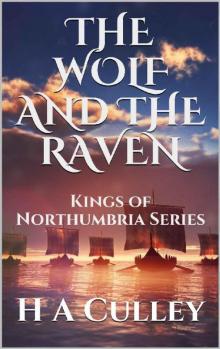 The Wolf and the Raven
The Wolf and the Raven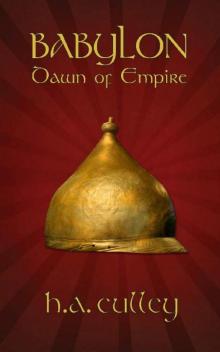 Dawn of Empire
Dawn of Empire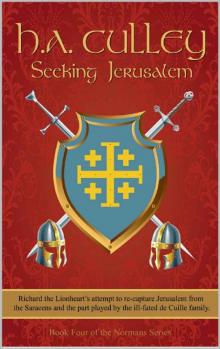 Seeking Jerusalem
Seeking Jerusalem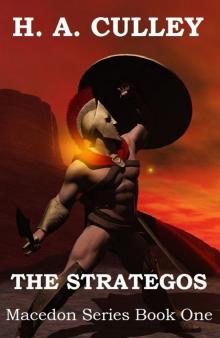 The Strategos
The Strategos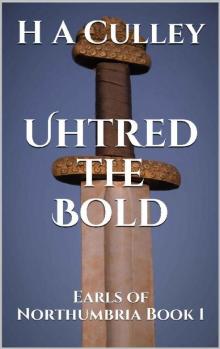 Uhtred the Bold
Uhtred the Bold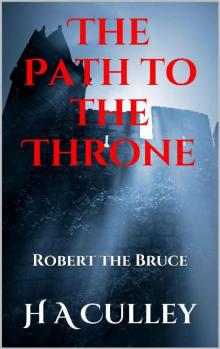 The Path to the Throne
The Path to the Throne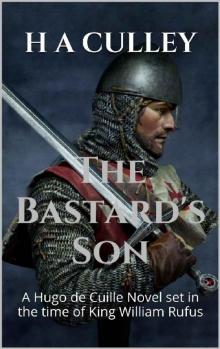 The Bastard's Son
The Bastard's Son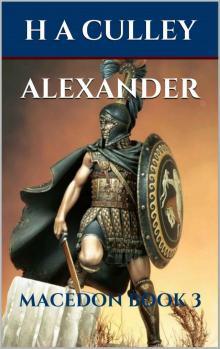 Alexander
Alexander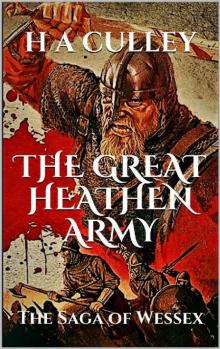 The Great Heathen Army
The Great Heathen Army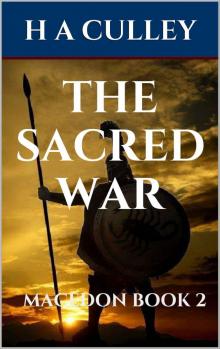 The Sacred War
The Sacred War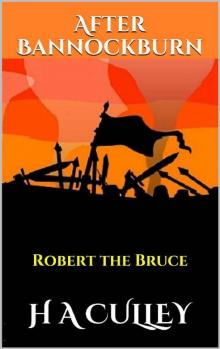 After Bannockburn
After Bannockburn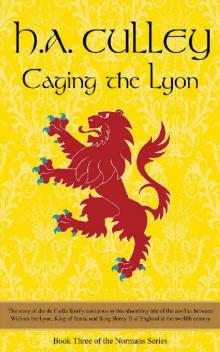 Caging the Lyon
Caging the Lyon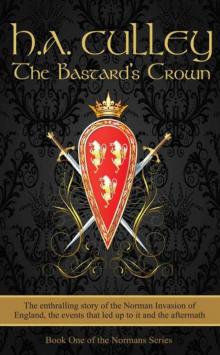 The Bastard's Crown
The Bastard's Crown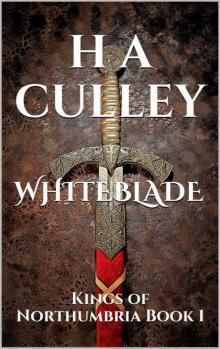 WHITEBLADE
WHITEBLADE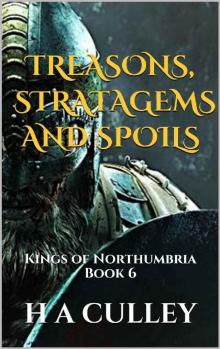 TREASONS, STRATAGEMS AND SPOILS: Kings of Northumbria Book 6
TREASONS, STRATAGEMS AND SPOILS: Kings of Northumbria Book 6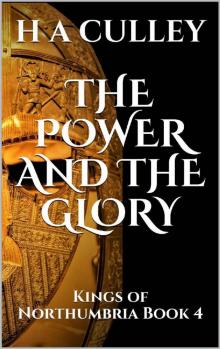 THE POWER AND THE GLORY: Kings of Northumbria Book 4
THE POWER AND THE GLORY: Kings of Northumbria Book 4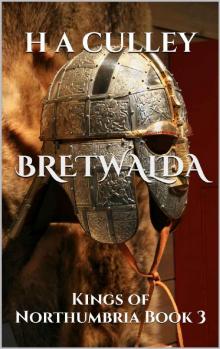 BRETWALDA: Kings of Northumbria Book 3
BRETWALDA: Kings of Northumbria Book 3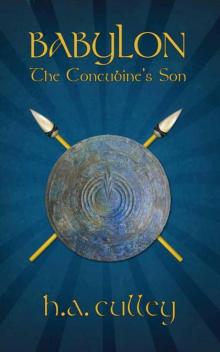 The Concubine's Son
The Concubine's Son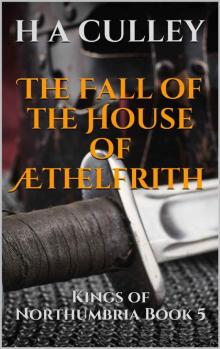 The Fall of the House of Æthelfrith: Kings of Northumbria Book 5
The Fall of the House of Æthelfrith: Kings of Northumbria Book 5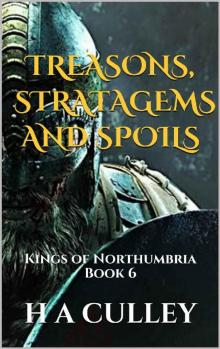 TREASONS, STRATAGEMS AND SPOILS
TREASONS, STRATAGEMS AND SPOILS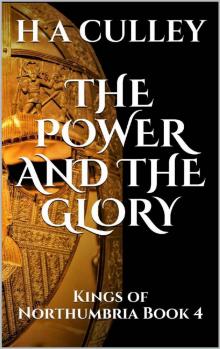 THE POWER AND THE GLORY
THE POWER AND THE GLORY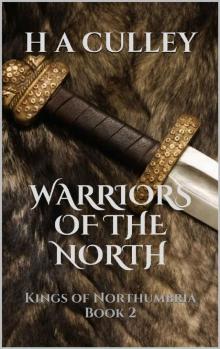 WARRIORS OF THE NORTH
WARRIORS OF THE NORTH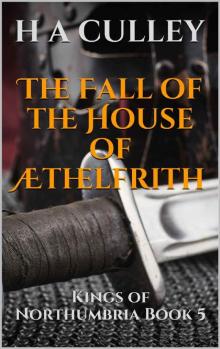 The Fall of the House of Æthelfrith
The Fall of the House of Æthelfrith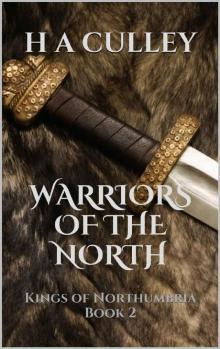 WARRIORS OF THE NORTH: Kings of Northumbria Book 2
WARRIORS OF THE NORTH: Kings of Northumbria Book 2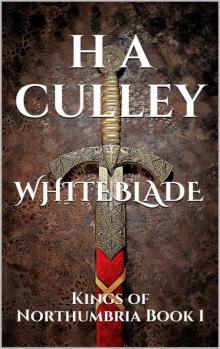 WHITEBLADE: Kings of Northumbria Book 1
WHITEBLADE: Kings of Northumbria Book 1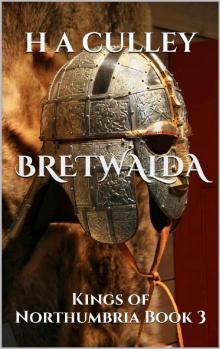 BRETWALDA
BRETWALDA